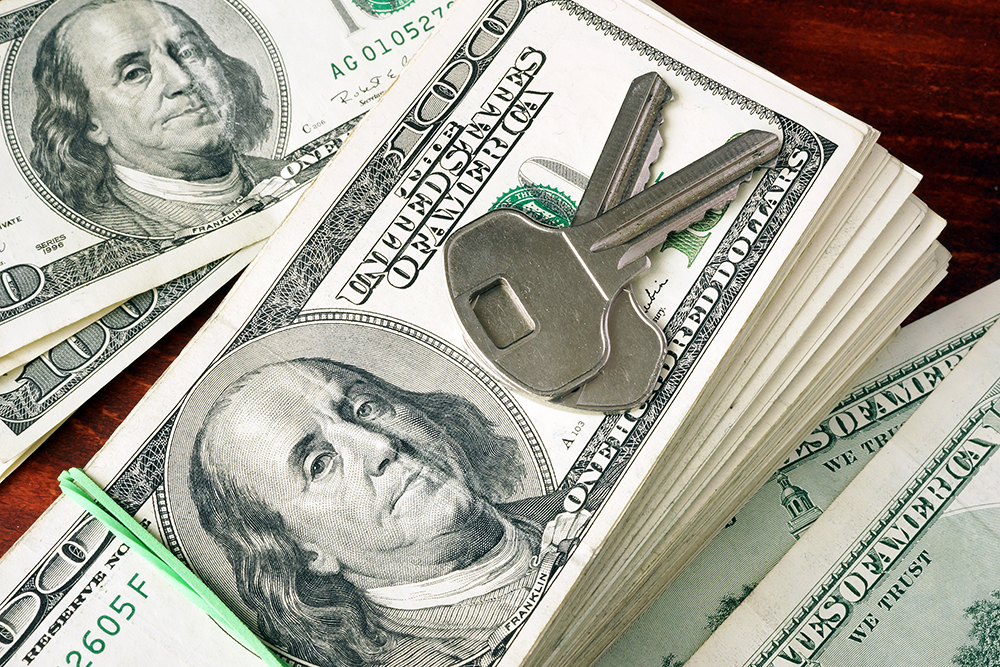The gap between the haves and the have-nots gets larger every year. Some effects of the Covid-19 pandemic are still being felt by the masses. One of those is the rise of rental prices. Rent will never be the same.
We could not predict a virus interrupting our economy or U.S. involvement in the Russia-Ukraine conflict. Now that we are here, we have been subjected to inflation. Everything is more expensive now, but one’s biggest expense is housing, especially with rent increases. It is taking increasingly more money to live comfortably.
SmartAsset did a study earlier this year based on the 50/30/20 rule that 50 percent of your income goes toward necessities (bills, transportation, groceries), 30 percent on entertainment, and 20 percent on savings and investments. Based on this metric, they compiled a list of the 99 largest cities, ranking them in terms of the lowest salary needed to sustain a comfortable life (not living paycheck to paycheck). Memphis was ranked 25th, listing $85,696 as the lowest salary needed to sustain a single person.
According to the 2022 census, the per capita income in Shelby County was $36,230. Most residents only have a high school diploma, but the SmartAsset study suggests that these same residents need to make $85,696 a year to live comfortably. It is suggested that no more than 30 percent of your income go toward rent, but half of all renters in Tennessee are spending more than that.
Affordable low-income housing exists, but the requirements often include making less than $30,000 to $40,000 a year. This leaves those in the middle in a bind. Your income is above the poverty line, yet you do not make enough to be comfortable.
Because of rent increases, some people have to resort to finding roommates or are forced to relocate to a less desirable neighborhood. Rent increases promote the displacement of loyal tenants for those more well-off. This affects proportionally more low-income and middle-class tenants.
The need for rent control regulations in Tennessee is paramount. In 2021, lawmakers tried to amend TCA Title 66, Chapter 35, which prohibits local government authorities from enacting rent control. The amendment was withdrawn.
In a county where most have not completed undergrad or graduate school, it is becoming increasingly more difficult to survive in this inflation-riddled economy. There needs to be a union organized to allow the community’s voices to be heard. Legislation for rent control should be introduced and passed. Locally, we should have the freedom to give tenants more rights instead of all the power belonging to the landlord. Opponents say rent control would suppress new housing construction. One could argue that supplying affordable housing to the average American exceeds that risk. Fewer evictions and more stable tenants able to pay rent prevent homelessness and time spent in civil court over evictions.
In the meantime, it’s understood that one must do their own part to sustain a lifestyle that can comfortably afford a nice place even with rent increases. One must consider going back to school, getting another degree (potentially raking in more student debt) so they can potentially get promoted to a higher paying job. Nevertheless, the middle class deserves to live in safe neighborhoods with reasonable rates. Without any rent control protections, a landlord or property owner can raise the rent as soon as the lease expires to match the market, irrespective of the local county’s average income.
In the zip codes with the highest number of homicides, rent is cheaper. But the average citizen wants to live in a safe neighborhood where they don’t fear car theft, robberies, and violence. The safer areas in Memphis cost more. Do only those with the means deserve to live in a safe environment where their kids can ride their bikes without cause for concern? There is a price tag on having peace of mind when you go to sleep at night. There is an income level that dictates the probability of whether your car will still be in your driveway the next morning.
It’s understood that year after year price increases affect our lives, but it should be a reasonable percentage. It shouldn’t mean having to move because it became unaffordable. Years ago, one expected maybe $50 to $100 increase (monthly) after a lease renewal, but I have seen apartment complexes increase by the hundreds of late.
Hopefully there is further discussion on this topic with meaningful discourse toward finding common ground. There should be compassion toward low- and middle-income citizens who want to live in safe neighborhoods where they can raise their children. If more people speak to lawmakers, sign petitions, work together to get legislation signed, and raise overall awareness, we can find a solution to a growing issue that affects the have-nots.
Bria Michele is a native Memphian who has always had a passion for writing. Outside of publishing her first novel this year, she enjoys reading fantasy novels, dancing, skating, and crocheting.
